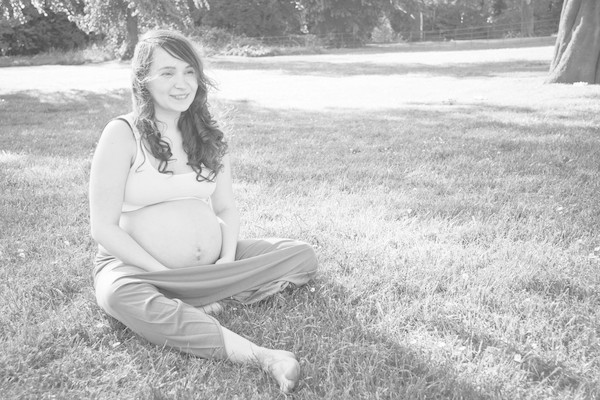Your share could raise £30
Before you go, did you know that simply by sharing this campaign, you could help it raise £30? It's an effective way to support the cause.
No thanks- Pin it
- SubscribeUnsubscribe
- Embed
Paulina Ewa Sporek hasn't added a story.

‘A woman’s relationship with her maternity providers is vitally important. Not only are these encounters the vehicle for essential lifesaving health services, but women’s experiences with caregivers can empower and comfort or inflict lasting damage and emotional trauma. Either way, women’s memories of their childbearing experiences stay with them for a lifetime and are often shared with other women, contributing to a climate of confidence or doubt around childbirth.’
White Ribbon Alliance, Respectful Maternity care, 2011
The Deaf Nest Project is a vision of maternity services where every deaf parent has full access to services, an excellent childbirth and pregnancy experience and the information to make informed choices. The Deaf Nest project aims to improve deaf users’ personal experience, equality of access, choice and control over maternity care. Pregnancy and motherhood are major life events for all women, not least for deaf women. Nevertheless, they need to be accepted and supported in their choice to become parents and to be cared for and treated like every other woman.
The birth of a child is a momentous and happy occasion in the lives of most parents. Parents expect not only a joyous addition to the family, but also the continuation of the family lineage. Unlike expectant parents with disabilities, expectant deaf parents, like those in any other language minority, commonly hope to have children just like themselves, with whom they can share their language, culture and unique experiences.
Deaf parents face considerable obstacles in their journey of parenthood. They are frequently educated below their capacity, employed below their capability, and viewed negatively by the hearing world because they are deaf. The fact that being deaf is viewed negatively in our society creates complicated interactions between deaf parents and the hearing professionals with whom they come in contact.
 Why is it important?
Why is it important?
Parents have been left frightened by limited information, no communication provision and a general lack of understanding about the culture of Deaf people.
Hearing loss is a major and growing public health issue, currently affecting more than 10 million people in the United Kingdom. It has significant personal and social costs. What evidence is available indicate poorer physical health among deaf people. Sign Health’s report ‘Why Do You Keep Missing Me?’ shows that 32% of deaf people find it difficult to explain their health concerns and 35% walk out of an appointment and do not understand what have been told to them. The barriers deaf families encounter include discriminatory health and social support services and limited access to information. Those barriers not only erect restrictions to participation in the normal life of the community, but also place limits on women’s psycho-emotional wellbeing. This being a significant draw back to the research since the ‘Saving Mother’s Lives‘ report has again identified the links between social exclusion and vulnerability and adverse pregnancy outcomes.
Information was also gathered on local and national charities, drawing from websites, email correspondence and face-to-face meetings. There are few local charities across the country which offer support and practical help to deaf people. The author met with two national charities- the Sign Health and the Deaf Health Champions. Both these organisations have strong working relationship with the UK Council on Deafness and a history of collaborative working. While both of these organisations are working towards improving access to healthcare and information about health and wellbeing, there is lack of information and services specific to pregnancy and childbirth.
Consequently, there is an acute need to train midwives and other medical staff in deaf awareness and associated communication skills.
As one mother from consultation group for deaf parents explains:
‘Pregnancy is all new to me. Deaf people don’t have access to the general community. We can’t just go and talk to our neighbours like hearing people can. So when our daughter was born, my partner was sent home after 6 hours. That was a huge shock! I had to look after the baby while my partner rested. I didn’t have a clue what I was doing. I had to use Google but everything is in English so I just looked for pictures.’
Our mission
 The real work to implement the Deaf Nest Project objectives
relies on individuals acting to embed its values.
The real work to implement the Deaf Nest Project objectives
relies on individuals acting to embed its values.
A great deal of support and enthusiasm is building around the Deaf Nest Project, with a strong collaboration being demonstrated by supporting national and local charities, midwives and other health professionals. The evidence of of this enthusiasm and commitment has been demonstrated during past twelve months, reaching its momentum at the first Deaf Nest Conference held on 11th of June at the University of Salford.
Making appropriate changes in care provision can ensure that Deaf mothers will be happier with the care they receive. In order to offer greater choice and control for deaf women and include them in provision of care, midwives and other health professionals need to understand the health inequalities they experience to access healthcare services.
My pledge is to work with midwives and other health professionals across England to help them to understand deaf Women’s needs and problems they may face when accessing maternity services. And to work with deaf parents to provide them with best start to parenthood.
Janice Connolly, Deaf Health Champions, Volunteer Co-ordinator - Merseyside explains:
'The impact that this project can potentially have on maternity provision within the deaf community is tremendous. I only have to draw on my own experiences to remember the terrible experience of pregnancy and accessing services. When conferring with other deaf parents the traumatic tales are all too similar. Parents have been left frightened by limited information, no communication provision and a general lack of understanding about the culture of deaf people. It is refreshing to see the Deaf Nest project aiming to change this situation.'
Why should you support ?

The project has won the Royal College of Midwives Annual Award, Slimming World Award for Public Health; the British Journal of Midwifery Award, Student Midwife of the Year Award; the Employers Network for Equality and Inclusion, Commendation in the Community Impact Award and the Iolanthe Midwifery Trust, the Ann Stewart Award. Also, it has been recognised and awarded the Certificate of Commendance by the Cavell Trust and shortlisted by the MAMA Awards for Supporting Families Service of the year.
I'm recently looking for funding for the Deaf Nest project to help me in my attempts to improve maternity care for deaf parents. Deaf Nest Project is very cost effective and volunteer led. However, funding is needed for creating resource packs for midwives and deaf parents, leaflets, banners, and the conference day. You could make a huge difference in improving maternity care provided to deaf parents. We are often taking access for granted. It is sad to think that in 21st century there is still disadvantage group of people who don't have an access to basic information about their health, and their experience with health services is a traumatic one.
Jonathan Swift, Deaf Health Champions, Acting Project Manager said:
'In my opinion the Deaf Nest project is a ground breaking achievement in both the deaf and midwifery community, and has the potential have a huge impact on addressing the huge inequalities that exist for deaf parents of the future. As with all areas of Health & Social Care, it is much evidenced through the project that antenatal and postnatal services are frequently failing to meet the basic needs of deaf mothers and fathers that relate to to their unique communication, linguistic and cultural needs. The project has already won a national award in public health from the Royal College of Midwives, which in itself is huge achievement. The Deaf Health Champions project, which is managed by SignHealth fully supports the Deaf Nest project in attempting to tackle the injustices that exist in maternity provision for deaf parents.'
Deafness implies diversity, and diversity in relation to hearing loss needs to be acknowledged, understood and, most importantly, respected.
Any contribution is welcome!
From behalf of many disadvatged Deaf parents in the UK
Thank you!
Highlights
See all activity13Activity
Delete media item?
Delete this item from the media gallery? It will also be deleted from any related story update.
Set as ?
The campaign video will appear in social media and email.
The campaign cover picture will appear in social media and email.
The will appear at the top of your campaign page and in social media and email.
Reset ?
It will be removed from the top of your campaign and won't be used as default in social media and email. The will remain in the media gallery.
Embed
Share a link
Delete update
Delete this story update?
Any pictures or videos will remain in the campaign's media gallery.
Report campaign
Report submitted
Thank you. We take reports like yours very seriously. Our goal is to keep the community safe.
Please know that we may contact you for more information, but that we won't notify you personally of our decision. If the campaign remains available within a few days, it's likely that we determined it not to be in violation of our policies.
Thank you. We've already received your previous report. If the campaign remains available within a few days, it's likely that we determined it not to be in violation of our policies.
Tell us about the problem. Please fill in both fields below.
Record a video
Upload a video
Nothing grabs attention for your cause like a personal video. Take a minute or two to record one now. Record a short video message of support. Or upload one from your device. You can preview or redo your video before you post it.
Nothing grabs attention for your cause like a personal video. Upload a short video message of support. Upload a short video message of support. Or record one right now.
- Most effective video length: about a minute.
- Maximum length: 5 min.
- You can preview or redo your video before you post it.
Heads up! The existing video will be replaced.
Email your friends
Join our team
Tell people why our cause matters to you. Your personal message will encourage others to help. Easy, effective, optional.
Say it in video
Short personal videos by supporters like you are incredibly powerful. Record one right now and you'll help us raise more money. Easy, optional, effective.
Add a personal goal
Set a personal fundraising goal. You'll encourage more contributions if you do. And rest easy. There's no obligation to achieve your goal or bad consequences if you don't. Easy, optional, effective.
We have a video!
Video thumbnail
We'd love to show you our campaign video. Want to take a look?

, you're already on the team.


 Why is it important?
Why is it important?  The real work to implement the Deaf Nest Project objectives
relies on individuals acting to embed its values.
The real work to implement the Deaf Nest Project objectives
relies on individuals acting to embed its values.